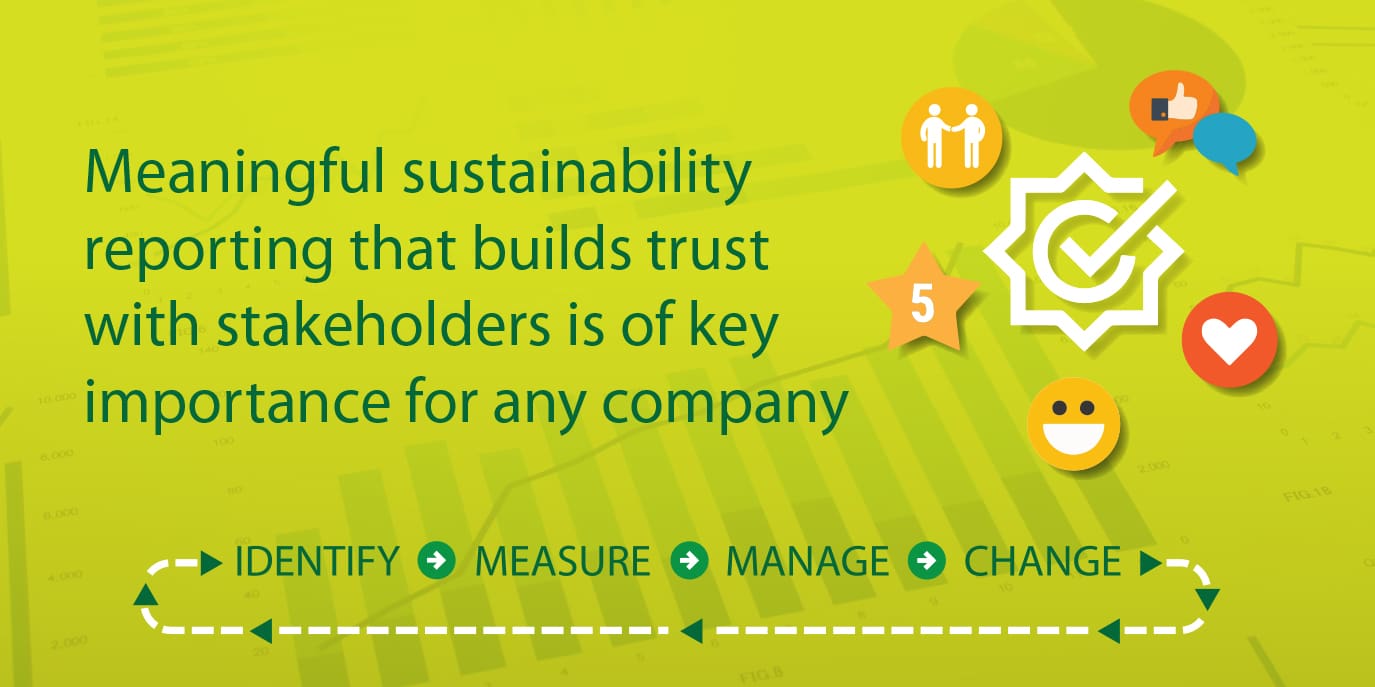More and more companies of every size and sector adopt a more structured, methodical approach to Corporate Social Responsibility (CSR) reporting today by becoming increasingly aware of their impacts towards the environment and their stakeholders: investors, clients, employees, suppliers, local communities. They identify their impacts on the environment and stakeholders, measure, set targets and take action to minimize their negative impacts and increase their positive impacts. Finally, they report the outcomes in their CSR report – on a continuous cycle of performance improvement, across all their operations.
There are 4 steps to your report:
- Identify your impacts on the environment and stakeholders
From the moment a company is founded, it will have impacts not only on the environment, but also on its stakeholders. Sharing relevant information with the right people (your key stakeholders) will offer you invaluable feedback on the impacts of your company’s operations and practices, as long as the information shared is accurate, honest and complete.
- Measure: “What you cannot measure you cannot manage, what you cannot manage you cannot change.”
Your company’s objectives and targets should be SMART:
Specific: Make sure it is absolutely clear what is expected, why it is important, who is involved, where it is going to happen, which attributes are key.
Measureable: Establish concrete criteria for measuring progress towards the achievement of your goals. If a goal is not measurable, it is not possible to know how your company is making progress towards its achievement.
Achievable: Set goals that are realistic and attainable.
Relevant: Choose goals that matter.
Time bound: Choose a time-frame to achieve your company’s goals and give them a target date.
- Manage
Set targets to minimize your negative impacts and increase your positive impacts on the environment and your company’s stakeholders. Deal openly and responsibly with the impacts your company has on the environment and on your clients or employees, on your suppliers or shareholders, on local communities.
- Change
Communicate your positive contribution. Report your Continuous Performance Improvement (CPI) and how you are making a difference by implementing positive change. How you are forming in your sector a positive chain reaction by requiring you supply chain to follow suit and implement responsible CSR/ Sustainability policies and actions.
To prepare a CSR/sustainability report according to the GRI reporting Standards your first step is to join the next FBRH GRI Certified 2-day course where you will:
- Learn about GRI’s reporting Standards
- Conduct stakeholder engagement and materiality assessment. In other words, identify your company’s most important impacts on the environment and stakeholders who can hold your company back or stop it from reaching its objectives
- Develop report content
- Manage assurance procedures
- Communicate your report
FBRH GRI Certified Training – Click here to register.
Contact FBRH for info or a Callback









